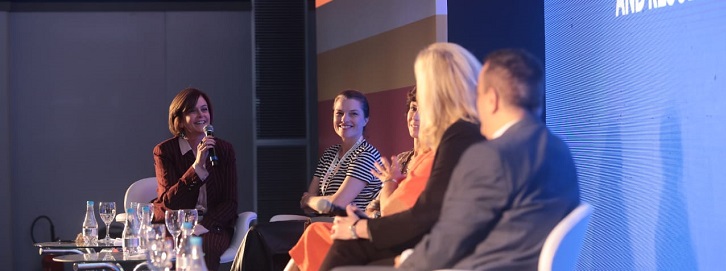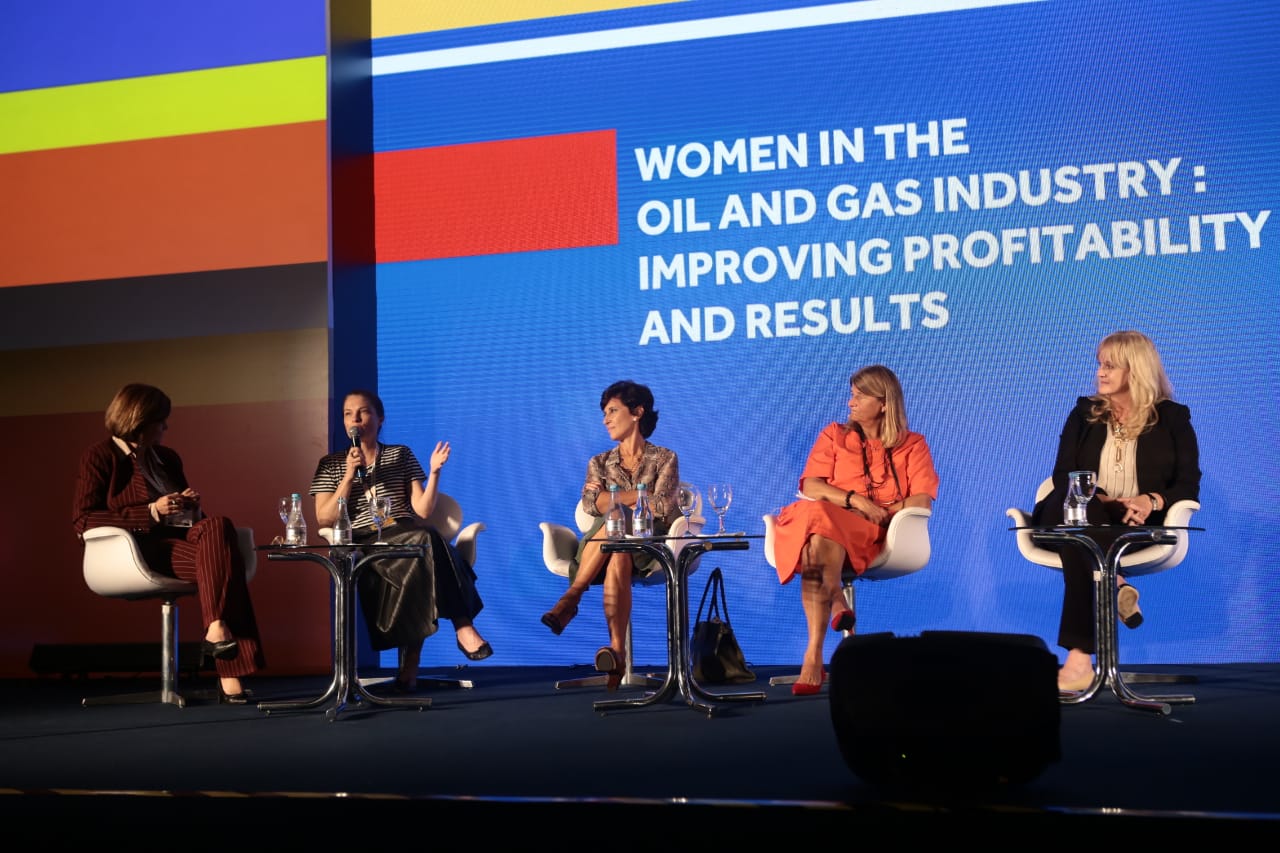Oil and gas executives debate increasing competitiveness of projects

On the second day of OTC Brasil 2019, companies in the sector address topics such as cost, technology and attracting young talent
Oceans offer many energy opportunities, but domesticating them requires investment, skilled people, and especially high technology. This was shown by representatives of nearly a dozen companies, including the global directors of exploration and production of the world’s largest oil companies, who participated in OTC Brasil 2019 on Wednesday afternoon (30/10).
For IBP emeritus Board Member, Jorge Camargo, the energy transition changed the scenario of competition in the oil and gas sector. “We always had to compete, but the competition itself has changed. We now have to compete with other industries”, he said at the opening of the panel “How to increase competitiveness in deepwater projects.”
ExxonMobil E&P Director Stephen Greenlee responded to Camargo’s provocation by defending the competitiveness of the offshore industry. According to him, despite the challenges of the energy transition, there is still a great potential for oil and gas production, especially in deep water. Exploiting it, however, requires creativity. “Our ability to exploit these resources (deepwater oil) over the past ten years has increased considerably. They compete very favorably”, he said.
Total E&P Director Arnaud Breuillac recalled that the challenge of having profitable projects with technology and innovation is to attract young talent to the sector. For him, this is one of the biggest challenges in the industry, as deepwater projects are competitive even when compared to the so-called US shale oil.
Baker Hughes Chief Operating Officer Uwem Ukpong recalled that the discovery time for the first oil has gone from 20 years to 5 years. To further improve this brand, as proposed by Petrobras, whose goal is a thousand days, he stressed that it is necessary to invest more in collaboration between operators and suppliers. “Technology and collaboration are what will take us to the next step”, he said.
Petrobras presented its 1,000-day challenge, but the company’s E&P director Carlos Alberto Pereira de Oliveira stressed that competitiveness has always been a goal of the company, whose cost of capital has historically been higher than its competitors. Now, he said, the focus is on pursuing disruptive projects. “We need to think about disruptive models, and that is the only way we can increase competitiveness”, he said, noting that one of the company’s steps towards reaching the mark of less than three years until the first oil is to be 100% sure that it will find oil by drilling a well.
Equinor Brazil CEO Margareth Øvrum also spoke of energy transition, technology and innovation, but like the Petrobras director, she has not forgotten the costs inherent in the operation in Brazil. According to her, it is important to remove unnecessary complexities and invest in innovation, as the company proposes in the new research center it inaugurated in Rio de Janeiro, but one cannot lose sight of tax and regulatory aspects. “Brazil is improving regulation, but still needs to simplify its tax collection system”, she said.
Renewable energy
In the offshore renewable energy panel, companies such as Equinor, Aquatera, Deme, Aker, SBM and Petrobras presented the projects, most of which are already being developed in various parts of the world. According to Petrobras technical advisor on the Libra project, Fabio Passareli, renewable energy generation in offshore pre-salt oil exploration areas will play an important role in reducing the carbon footprint of these projects. The development of these initiatives, however, depends on reducing equipment costs to make them viable.
Veronica Coelho, Vice President of Equinor in Brazil, showed a wind generation project associated with oil rigs supported by the Norwegian government. According to her, this type of solution fuels platforms, helps reduce the carbon footprint of the oil production operation and also releases gas for sale or reinjection.
Rafael Torres, director of business development at SBM Offshore, presented a floating wind turbine suitable for high depths. In Brazil, he said, technologies like this should come true in Brazil in four or five years.
According to Professor Segen Estefen, from the Federal University of Rio de Janeiro, such structures may be quite suitable for the coast of the country, which has high wind generation potential.
Female leadership

The oil and gas sector seeks alternatives to expand female inclusion, which was theme of the panel “Women in the Oil and Gas Industry: Improving Profitability and Results”. Anelise Lara, Petrobras’ executive director of Refining and Natural Gas, said there is still a long way to go to achieve income parity between men and women. “Today, only 17% of oil and gas executives and seniors are women.”
But female leaders are already seeing advances and argue that diversity improves companies’ performance. Kim McHugh, vice president of Drilling at Chevron, said that “women must already be ‘sponsors’ of other female talents” and “change the unconscious corporate culture of bosses when it comes to distributing opportunities.”
Margareth Øvrum, CEO of Equinor Brasil, who mentors many young people, especially women, emphasized the importance of leadership in this regard. “Earlier in my career, I heard from bad leadership, facing a problem I could solve, that my job would be to ‘get coffee and cookies for the boss’. He is no longer in the company”, she said.
Exhibition Area
At the exhibition, Petrobras brought two major themes: Pre-salt and the Libra Project. Divided into multiple environments, the booth features four interactive displays featuring highlights of its operations, including a video about the next pre-salt P-68 platform and an animation of the Project’s five pioneering technologies. Libra, who received the OTC Distinguished Achievement Award on Wednesday for the field’s long-term test (TLD).
The booth also features a free daily schedule of lectures, plus the Pre-Salt Mission, an interactive dashboard that simulates pre-salt operations using joysticks, and Connections with Innovation, an environment in which startups are interested. can speak directly to the operator’s technicians.
OTC Brasil is sponsored by Petrobras, Equinor, ExxonMobil, Shell, BP, Chevron, Petrogal, Total, Repsol Sinopec, TechnipFMC, Vallourec, PetroRio, Aker Solutions, Frank’s International, Maha Energy Brazil, Shawcor, Solvay, Halliburton, Enauta and MOL.